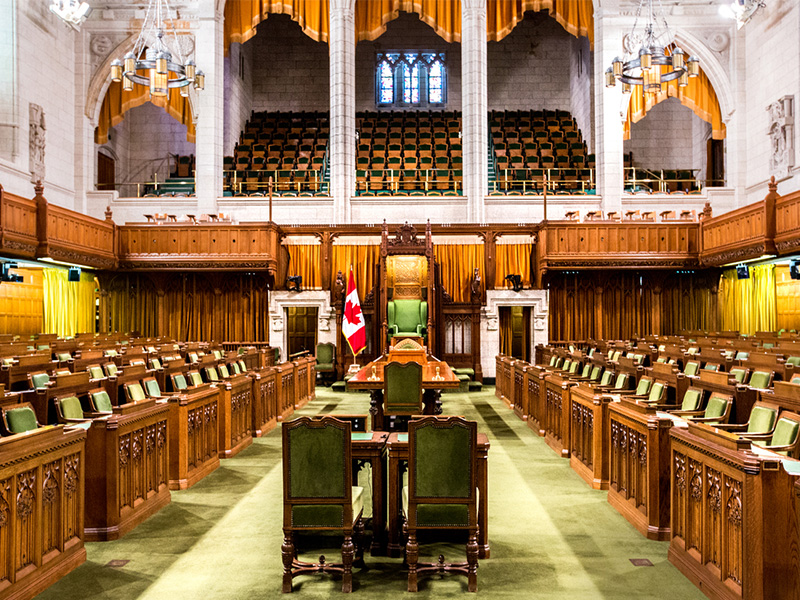He told reporters Thursday morning he has received responses from colleagues to his request earlier this summer for cuts of 15% in day-to-day spending over the next three years.
When asked whether the spending reduction plan might include public service layoffs, he said the government “will find adjustments.”
The pace of public sector growth during the Covid pandemic was “not sustainable,” he said.
“I think a leaner and more efficient government to provide services to Canadians, that is needed as you’re looking to rebuild this nation,” Champagne said.
He said the spending adjustment will not affect services to Canadians, in part because the government is also looking to give public servants modern tools to make them more efficient.
“In many ways, we have systems of the 20th century to provide services in the 21st century. So we need to modernize things, we need to be more efficient,” he said.
Champagne said earlier this week he had tasked the Canada Revenue Agency with implementing a 100-day action plan to address delays and service delivery issues at CRA call centres.
On Wednesday, Carney described the upcoming budget as both an austerity plan and one that will ramp up investments to strengthen the economy.
Since taking office, Carney has promised a significant increase in defence spending and faster development of major infrastructure projects.
Conservative Leader Pierre Poilievre has accused Carney of spending freely and dragging his feet on getting major projects approved since the spring federal election.
Champagne acknowledged there will be “turbulence” in the short term as Canada attempts to reorient its economy in the face of U.S. trade aggression.
He said the government will be able to trim daily spending while making investments in infrastructure and large capital projects that will set Canada up for future “prosperity.”
Champagne said Canadians have had to rein in household spending due to the cost-of-living crunch, and Ottawa should be expected to do the same.
“People understand, when you go to the grocery (store), you spend, when you buy a house, you invest. They know you need to do both at the same time,” Champagne said.
“We’re going to be ambitious in our investment and rigorous in how we manage our expenses.”
Cost of living concerns
While the U.S. trade war remains a priority for cabinet, pollster Jean-Marc Léger, who gave a presentation to cabinet Wednesday, said tariffs have slid down the list of public concerns to fourth place, with the cost of living now back at the top.
Léger said Canadians are less afraid of tariffs and Trump than they were last winter, but are still anxious about the state of the economy and the cost of living.
Industry Minister Mélanie Joly told reporters Thursday that Canadians want the federal Liberals to be in “action mode” to build up the economy in response to Trump’s global trade disruption.
Joly gave the example of retooling Canada’s steel sector — traditionally oriented to the U.S. automotive supply chain — to produce the kinds of inputs needed for Canadian infrastructure, homebuilding, and defence and aerospace projects.
She said Ottawa wants Canadians working in the steel sector to feel confident that, no matter what happens south of the border, their jobs will be “resilient.”
“That’s the type of thinking we’re putting on the table,” Joly said.
— with files from Craig Lord in Ottawa

